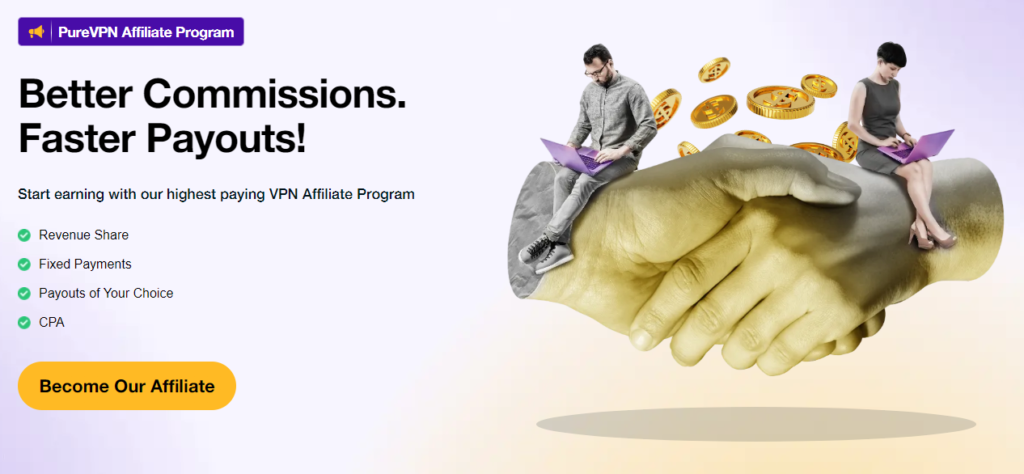Business
The TopRanked.io Weekly Digest: What’s Hot in Affiliate Marketing [PureVPN vs NordVPN Affiliate Program Review]
This week’s all about doing battle (and making money). Specifically, we’re gonna show you how you can use the ongoing Elon vs Brazil battle to 2x or more your affiliate commissions (seriously). And seeing as we’re on the topic of battles, we’ve also got a nice little PureVPN vs NordVPN Affiliate Program comparison to help you choose the best VPN affiliate program for you. (Hint: it’s both)

This week, my old friend Russian friend Vlad is up to his old tricks again.

Now, maybe he’s just bluffing again. Or maybe he isn’t. Only time will tell…
…although, if he’s not bluffing, a bunch of us are never gonna know about it.
Whoops. Maybe that was a little too dark.

Anyway, all of this has been Putin ideas in my head, so time to stop Stalin and just Russian to it.
This week, I’m declaring war.
TopRanked.io Affiliate Partner Program of the Week – PureVPN vs NordVPN Affiliate Program
Alright, alright. No, I’m not declaring literal war. But I thought this week I’d take a break from the usual review format and do something different instead.
So here’s what I did.
I went to our affiliate marketing directory and pulled out the two best VPN programs we have.
And then I came here to write a PureVPN vs NordVPN Affiliate Program review.
Here’s what I found.


PureVPN vs NordVPN Affiliate Program — The Products
Alright, there’s no secret about the products here, so let’s just get straight to some details about the products behind this PureVPN vs NordVPN Affiliate Program review.
PureVPN vs NordVPN Affiliate Program Review: Product Pricing
| Plan | PureVPN | NordVPN |
| Monthly Plan | Standard: $12.95/mo, Plus: $15.95/mo, Max: $19.95/mo | Basic: €12.99/mo, Plus: €13.99/mo, Ultimate: €16.49/mo |
| 1-Year Plan | Standard: $3.99/mo, Plus: $5.82/mo, Max: $7.07/mo (31-day money-back guarantee) | Basic: €83.88/year (€6.99/mo equivalent), Plus: €107.88/year (€8.99/mo), Ultimate: €131.88/year (€10.99/mo equivalent) |
| 2-Year Plan | Standard: $2.14/mo, Plus: $3.33/mo, Max: $4.07/mo (with 3 extra months free) | Basic: €3.09/mo, Plus: €3.99/mo, Ultimate: €6.49/mo (with 3 extra months free) |
Now, PureVPN also has a 5-year plan (Standard: $2.16/mo, Plus: $2.66/mo, Max: $3.33/mo). But, because NordVPN doesn’t, I left it out of the comparison table.
Now, clearly, PureVPN is the cheapest. But, since this is a PureVPN vs NordVPN Affiliate Program Review, and not a PureVPN vs NordVPN product review, I’ll let you chose which one’s better here.
Lower price = easier conversions. Higher price = bigger commissions (all things being equal, but we’ll get to that).


PureVPN vs NordVPN Affiliate Program Review: Product Features
| Feature | PureVPN | NordVPN |
| Servers | 6,000+ servers in 80+ locations across 65+ countries | 5,600+ servers in 60 countries |
| Simultaneous Connections | Up to 10 devices | Up to 6 devices |
| Split Tunneling | Available | Available |
| Dedicated IP | Available as an add-on | Available as an add-on |
| Speed | “Hypersonic speed with 20Gbps servers” | “Fast, secure, and optimized for speed” |
| VPN Protocols | OpenVPN, IKEv2, L2TP/IPSec, SSTP, WireGuard | NordLynx (proprietary WireGuard protocol), OpenVPN |
| Apps Supported | Windows, macOS, Linux, Android, iOS, Chrome, Firefox, Edge, etc. | Windows, macOS, Linux, Android, iOS, Chrome, Firefox |
| Streaming Services Supported | Netflix, Hulu, BBC iPlayer, Disney+ | Netflix, Hulu, BBC iPlayer, Amazon Prime, Disney+ |
| P2P/Torrenting | Available | Available |
| SmartDNS | Available | Available |
| Encryption | AES-256 bit encryption | AES-256 bit encryption |
| Kill Switch | Yes | Yes |
| No-Log Policy | Independently audited, ISO 27001 certified | Independently audited, strict no-logs policy |
| Ad & Malware Blocking | Available | Available |
| Customer Support | 24/7 live chat, email support | 24/7 live chat, email support |
Now, based on this alone, I’m kinda tempted to say PureVPN comes out the winner here. Both are pretty equal, but PureVPN seems to have slightly more in most cases. Or, at least, it is a bit more “concrete” in its claims, like the fact it puts a number on its speeds instead of an adjective-only description like NordVPN.
But again, I repeat, this is a PureVPN vs NordVPN Affiliate Program Review, not a product review, so I’ll let you decide which is better.


PureVPN vs NordVPN Affiliate Program — The Affiliate Program
Ah, now we get to the meat of our PureVPN vs NordVPN Affiliate Program review — the affiliate program.
Let’s start where we always do — the commissions.
PureVPN vs NordVPN Affiliate Program: The Commissions
| Referral’s Subscribed Plan | NordVPN | PureVPN |
| Monthly Plan | 100% commission on new sign-ups, 30% on renewals | 100% commission on new sign-ups, 35% on renewals |
| 1-Year Plan | 40% commission on new sign-ups, 30% on renewals | 40% commission on new sign-ups, 35% on renewals |
| 2-Year Plan | 40% commission on new sign-ups, 30% on renewals | 40% commission on new sign-ups, 35% on renewals |
| Recurring Commission | 30% revenue share on renewals | 35% recurring commission on renewals |
| Sign-Up Bonus | None stated | $300 sign-up bonus for new affiliates |
Now, immediately, you might think PureVPN has the edge here with 35% commissions on renewals. That’s definitely a bit nicer than NordVPN’s 30% offer.
But here’s the thing. Remember when we looked at product pricing?
Right, NordVPN’s a pricier product, so you’re going to be earning more with NordVPN for every signup you drive.
PureVPN vs NordVPN Affiliate Program: Program Features
| Feature | NordVPN | PureVPN |
| Cookies | 30 days | 90 days |
| Tracking System | Real-time tracking and analytics | Real-time tracking and analytics |
| SEO Support | Yes, offers SEO support for partners | Not mentioned… but come one |
| Promo Materials | Provides links and promotional materials | Offers attractive deals & coupons to drive conversions |
| Accepted Geos | Global | Global |
| Program Variety | Other Nord Security products available | Other PureVPN Security products available |
| Dedicated Account Manager | Yes | Yes |
Again, this PureVPN vs NordVPN Affiliate Program comparison is pretty even. The only real thing giving an edge to either one is PureVPN’s massive 90-day cookies. That’s like, literally, three times what NordVPN is offering.


PureVPN vs NordVPN Affiliate Program — Summing Up
Look, there’s not a lot between these two programs. PureVPN has a slight edge in most aspects. But, if you want better brand recognition and something with higher prices (which equals better commissions), then maybe NordVPN might be better for you.
I’ll leave it at that for now. If you need more details to make up your mind, here are the full reviews for each on TopRanked.io:
Or, if you wanna get started right away with either one:


Affiliate News Takeaways — X-iled From Brazil
After months of back and forth between Brazil and X, X just caved in.
It banned a bunch of people at the request of the Brazilian government.
And it made a couple of other concessions along the way. (But we’ll get to the other concessions later.)
And now it would now like to get unblocked again.
Now, if you already know most of the story here, then go ahead and skip to the takeaway. If not, stick around and I’ll fill you in.
The story starts all the way back on Janurary 6, 2021.

As you probably already know, that story made the news big time. And, presumably, a bunch of Brazilians were following it and taking notes.
Then, not much happened in the time afterward.
Brazilians got bored.
Really bored.
So bored that they started watching Lord of the Rings to kill time.
And that’s when divine inspiration struck.

One thing led to another thing, and 2 years and 2 days after the great uprising in the good ol’ US of A, Brazil staged its own insurrection.
Oh, and by the way… if you think I was just making up the whole Lord of the Rings thing, then check this out.

See!? Undeniable proof. I literally couldn’t make this stuff up, even if I tried.
Anyway, back to the story.
As you can probably predict, governments will always be governments. So one thing led to another.
Investigations were started.
Censorship orders were made.
And those orders included that X ban certain people from its platform.
As you can guess, Musk was like, “nah brah, #FreeSpeech.”

Naturally, Brazil didn’t like this, so it decided to exact revenge. It opened an investigation into Musk for obstruction of justice.
And so Musk was all like, “Eff this, time to get out of Brazil” and closed up X’s Brazilian operations.

Obviously, that move also made Brazil a little bit not happy, and so another court order was issued. That order said X had to have a legal representative in Brazil.
Presumably, Brazil wanted someone to bully with prison threats and whatnot if they didn’t comply with censorship requests.
So once again, Musk was all like, “yeah, nah, not gonna happen.”

And so, after months of back and forth, Brazil just blocked X at the ISP level in the hopes that Brazilians would no longer use it.
Yeah, right.

By now, you’re probably thinking that Musk would have been out of manoevers to outsmart Brazil.
But, surprise, surprise, he still had one more trick up his sleeve.

Yep. Musk turned to Cloudflare.
As for how that trick was supposed to work, its simple.
I’ll explain the strategy in a second. But first, you gotta understand that Cloudflare is basically like a proxy server.

In other words, when you connect to websites that are using Cloudflare, you’re not actually connecting directly to that website’s servers. Instead, you connect to Cloudflare’s servers. Then, Cloudflare connects to the website’s servers on your behalf.
The strategy behind this move relied on the fact that Cloudflare is used by so many websites. If Brazil decided it still wanted to ban X, it would theoretically have to block Cloudflare. But that would mean blocking half the internet.
And guess what?!
Musk was right.
Brazil didn’t block Cloudflare.
Instead, President Lula hit Cloudflare’s CEO on his beeper to get the ball rolling on a good ol’ Mexican standoff.

I’ll leave your imagination to fill in the details here. But, to cut a long story short, Cloudflare ended up booting X from its platform.
And so Musk was back to square one, tapping away furiously at his keyboard, filling up the Google search bar with impossibly long longtail keywords that probably looked a little like “how can I circumvent national government imposed ISP-level bans on my giant social media free speech internetz platform?”
And you know what he found?
Nothing.

And so that brings us right up to today.
Musk caved in and complied with court orders.
And now that he’s done so, he’s literally begging to be let back into Brazil… because… I don’t know…
Because he’s losing revenue?
Because “principles matter more than profit”?
lol.
Anyway, that’s the story up until today, so go give yourself a pat on the back. You’re all caught up.

Now, at this point you’d probably presume that Brazil would start playing nice and let X back in.
And, maybe it will.
But there’s a plot twist.
Remember that bit about Brazil ordering X to have a legal representative acting on its behalf in Brazil?
Now can you guess what condition Musk is trying to impose on that little arrangement?
Musk basically wants to kneecap its Brazilian representative by slipping a sneaky clause into the agreement. That clause says something to the effect that its Brazilian rep cannot do anything without first getting written permissions from X HQ.
Now, maybe Brazil will bite. Maybe it will be like “yeah, cool, we’re okay with the sock puppet clause.”
But maybe (more likely), Brazil will just be like “uh, that’s not really the intention of the original court order… we wanted that representative to be someone we could hold legally accountable for their actions so we could threaten them with jail time if they didn’t do what we demand.”
Of course, they’ll just do it in more subtle language, and then deny the appeal.

Takeaway
At this point, things could go either way. But, if the more likely of the two scenarios plays out (Brazil doesn’t buy X’s sock puppet clause), this ban could go on a whole lot longer.
Now, what’s this got to do with affiliate marketing?
Well, if you can remember back a few memes ago, you already know the answer. But for those of you who can’t remember, the answer lies in a three-letter acronym: VPN.
Yep, turns out Brazilians love X so much that plenty of them just turned to VPNs to get around the bans.
But here’s where it gets juicy — a lot of Brazilians were too afraid of getting fined if they did so. (It’s thousands of dollars a day…)
Now, some of the more desperate but afraid Brazilians started sending their credentials to friends in other countries to get around the ban (true story). But that really only sounds like a temporary measure.
I mean, eventually, password sharing’s gonna go sour, no?

And, besides, what are the thousands of other Brazilians without foreign friends doing?
And so here’s where I think you can make some money.
By now, some people will be getting desperate to get back on X.
So you’re going to help them by promoting the idea of using multiple VPNs at the same time.
Now, if that sounds a little weird, hear me out.
Do you remember that 7 proxies meme?
While it’s an old internet joke, there is actually some logic to it.
You see, if people are afraid of getting caught using a VPN, it’s because they know a VPN isn’t really anonymous. The VPN company still sees everything you do, so all a government has to do is request your records from the VPN company, and voila, they know everything.
Of course, this is easier said than done if the VPN company is domiciled offshore. Depending on diplomatic relations and other political stuff. At best, for the person tracking, it means they face long delays in getting records from offshore VPN companies.
So, what does this mean in practice?
Well, if you’re looking to get around a government, pass through multiple jurisdictions. (PS: this trick works for other stuff too…)
Think of it like this.
Imagine I’m the Brazilian government and I want to track what you’re up to, but all I see is VPN traffic.
Okay, fine, I got lawyers, so I’ll get the process going to get your records. It might take several months, but it’ll be totally worth it, right?
Wrong.
Or, at least, it would be if you were using multiple VPNs.
If you were, then after months of waiting to get your records from VPN company X, all I’d see from them was that you were actually using VPN company X to connect to VPN company Y.
And so the process starts all over again.
Or it doesn’t if you’re not a valuable enough target because, you know, time and money.
So there you have it. The perfect pitch to upsell Brazilians on the virtues of using multiple VPNs domiciled in multiple jurisdictions.
FYI, remember our PureVPN vs NordVPN affiliate program review?
One difference we forgot to mention was that each is domiciled in a different country. PureVPN’s in the British Virgin Islands, and NordVPN’s in Panama.
They also both pay you really well for promoting them.


Closing Thought
This week, I really wanted to find some way to turn Vlad’s nuclear blustering into some sort of meaningful closing thought.
But, after about 30 seconds of deep and thoughtful reflection, I couldn’t find any good takeaway.
So instead, I started looking through Russian literature instead, because #YOLO.
Here’s what I found.

Now, if you don’t know what this meme’s about, it’s based on an old Russian fable called The Scorpion and the Frog.
The story goes like this:
- A scorpion wants to cross some water.
- The scorpion can’t swim.
- He sees a frog and says, “Hey frog, gimme a ride.”
- The frog says, “Nope, you’re gonna sting me and I’ll die.”
- Scorpion says, “No I won’t. I can’t swim, so if you die, I die.”
- Frog says, “Cool. Hop on.”
- Frog starts swimming.
- Scorpion stings frog.
- Frog says, “Bro, WTF?”
- Scorpion’s all like, “Sorry. Couldn’t help myself. It’s in my nature.”
- They both ceased to live happily ever after.
- The end.
Now, at first glance, this just sounds like everything else coming out of Russian literature…

But I reckon there’s a useful takeaway here.
But to get there, we first need a little perspective on Russia.
So let’s start with a fun multiple choice trivia quiz.
Question 1
- Question: Which of these things are distinctively Russian?
- Options: a) Adidas; b) Vodka; c) Nuclear Bombs; d) All of the above, duh.
- Answer: d) All of the above, duh.
Question 2
- Question: How many distinctively Russian things were actually invented by Russia?
- Options: a) 1; b) 2; c) 3; d) Zero!
- Answer: d) Zero!
Yep, that’s right. Nothing “Russian” was ever invented by Russia.
Vodka was invented in Poland.
Adidas was German.
And nuclear bombs are almost as American as Sesame Street.

So now we have proof that Russia steals just about everything, now we know they probably stole the idea for the Scorpion and the Frog.
And yeah, I think they did.
I think they stole it from a Greek dude named Aristotle.

He was a philosopher, and one of his ideas was about “akrasia” — a weakness of the will he referred to as incontinence.

Now, of course, Aristotle wasn’t talking about peeing your pants.
At least, not per se.
Instead, he was talking more generally.
He was talking about men who logically know what’s best for them, but still can’t stop themselves from acting on their impulses, even if those impulses go against their better interests.
In other words, acting on impulses is a totally beta, weak-willed move.
I mean, does giving in to the urge to pee your pants sound like a strong-willed alpha move to you?

No, it doesn’t.
This is alpha.

And on that note, I just awkwardly completed the circle.
Vlad and his bombs… scorpion and his stinger… mutually assured destruction… yeah, it’s probably just another empty threat. We all know Putin’s alpha as f***, right?
Anyway, awkward circle closing out of the way, here’s the takeaway:
Acting on impulse can be kinda bad, so learn to control your impulses.
Of course, don’t get too stuck up on the “what’s logically best” thing either. If you’re still debating that whole PureVPN vs NordVPN affiliate program thing, here’s my advice. Don’t overthink it. Pick whichever one your gut says to pick. Or pick both.


__
(Featured image by SevenStorm JUHASZIMRUS via Pexels)
DISCLAIMER: This article was written by a third party contributor and does not reflect the opinion of Born2Invest, its management, staff or its associates. Please review our disclaimer for more information.
This article may include forward-looking statements. These forward-looking statements generally are identified by the words “believe,” “project,” “estimate,” “become,” “plan,” “will,” and similar expressions. These forward-looking statements involve known and unknown risks as well as uncertainties, including those discussed in the following cautionary statements and elsewhere in this article and on this site. Although the Company may believe that its expectations are based on reasonable assumptions, the actual results that the Company may achieve may differ materially from any forward-looking statements, which reflect the opinions of the management of the Company only as of the date hereof. Additionally, please make sure to read these important disclosures.

-

 Business4 days ago
Business4 days agoThe Dow Jones Teeters Near All-Time High as Market Risks Mount
-

 Crowdfunding2 weeks ago
Crowdfunding2 weeks agoWorld4All, a Startup that Makes Tourism Accessible, Surpasses Minimum Goal in Its Crowdfunding Round
-

 Biotech1 day ago
Biotech1 day agoGut-Derived Molecule Identified as Early Marker and Driver of Atherosclerosis
-

 Crypto1 week ago
Crypto1 week agoThe Crypto Market Rally Signals Possible Breakout Amid Political Support and Cautious Retail Sentiment















